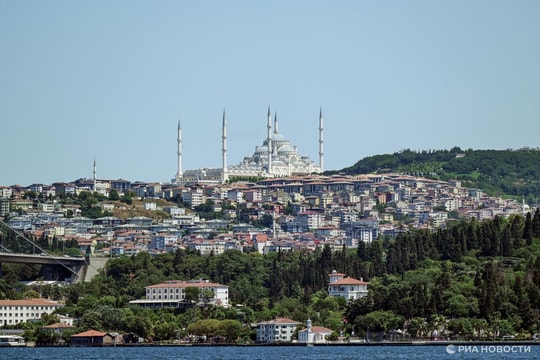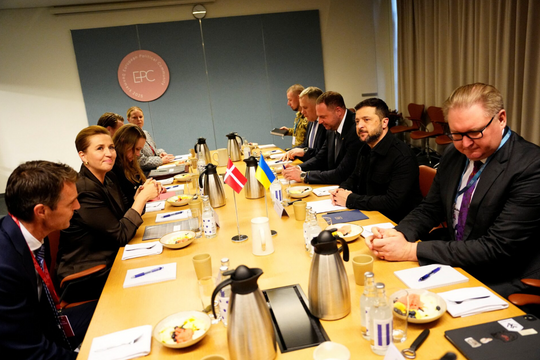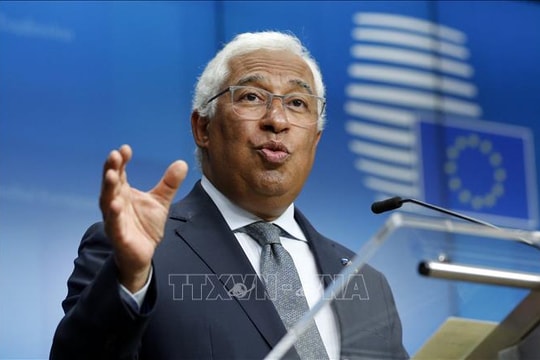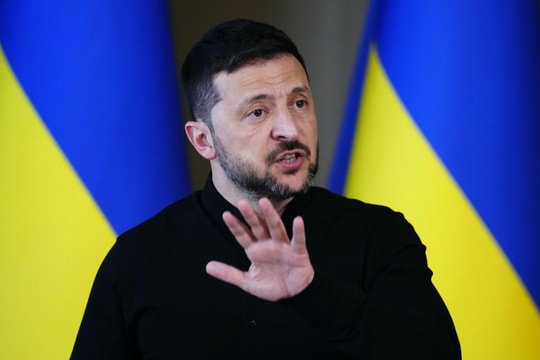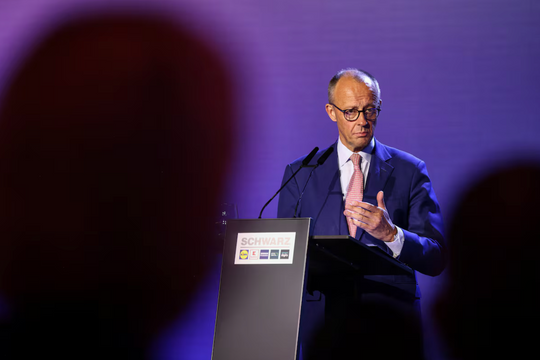Europe's dilemma when tightening sanctions on Russia
The EU wants to join its allies in increasing sanctions pressure to force Russia to stop its campaign in Ukraine, but economic worries are hampering their efforts.
The European Union (EU) is preparing a seventh package of sanctions against Moscow, including a ban on imports of Russian gold and measures to close loopholes in previous sanctions packages. EU member states are likely to approve the new sanctions package by the middle of next week, according to some EU diplomats.
But observers say the most notable thing about the new EU sanctions package is what it does not include. There is no ban on gas imports and no additional sanctions on Russian oil.
The sanctions package is sure to have some impact on Russia, but its narrow scope reflects the EU's growing anxiety about how to deal with Russia without putting greater strain on the bloc's own economy, according to Emily Rauhala and Quentin Aries, two analysts atWashington Post.
Despite the continuous sanctions from the West over the past 5 months, Russia continues to earn billions of dollars from energy exports, while the military campaign in eastern Ukraine shows no signs of ending.
The conflict has cast a shadow over EU economies, fueling record inflation and pushing the euro to parity with the dollar for the first time in two decades. While EU officials insist they remain united in their stance on Ukraine, leaders within the bloc appear less inclined to act collectively and increasingly focused on domestic issues, raising doubts about the future of Europe’s support for Ukraine.
Two months after the European Commission proposed a $9 billion financial aid package for Kiev, the bloc has only now given the green light to disburse about $1 billion.
European Commission President Ursula von der Leyen said on June 15 that the latest sanctions would ensure Russia continues to “pay a heavy price” for its military campaign in Ukraine. But analysts noted that, at least for now, Russia has been able to absorb the costs.
"The impact of the sanctions may not be as severe as initially thought. Russia has a perfect escape route: energy exports," said Clay Lowery, vice president of the Institute of International Finance based in Washington, USA.
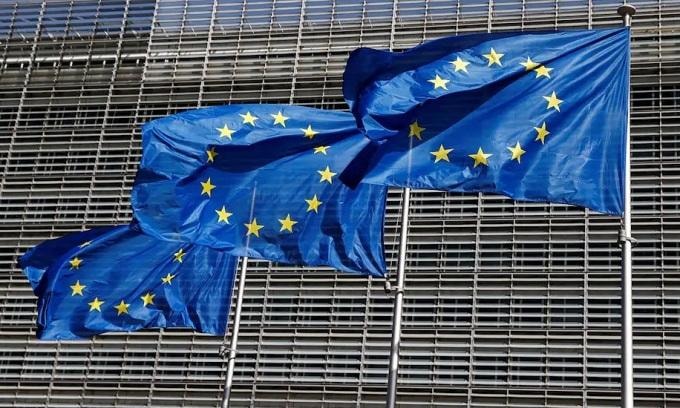 |
The European Union flag at its headquarters in Brussels, Belgium. Photo:Reuters. |
Shortly after Russia launched its campaign on February 24, the EU quickly targeted Moscow’s coffers with sweeping sanctions. Six sanctions packages were introduced, including asset freezes and visa bans on a number of Russian oligarchs and officials, export controls, a freeze on central bank assets, Russia’s exclusion from the SWIFT transaction system, and a ban on imports of Russian oil and coal.
But Europe, which imported about 40% of its gas and more than 25% of its oil from Russia in 2021, has been unable to keep up with the US in its efforts to cut its dependence on Russian energy.
It took weeks of intense debate for EU members to reach an agreement to phase out Russian oil imports. In order to reach this decision, the bloc had to agree to a time extension request from several countries heavily dependent on Russian oil, including Hungary.
On gas, the EU has made no further progress than in March, when it agreed to cut imports from Russia by about two-thirds this year. Moscow then threatened to cut off gas flows to Europe entirely, leaving countries scrambling to find alternative supplies and bracing for a difficult winter.
Russia, meanwhile, continues to benefit from soaring energy prices. The Helsinki-based Centre for Energy and Clean Air estimates that Moscow earned around $100 billion from energy exports in the first 100 days of the conflict, 60% of which came from the EU.
To limit Russian energy revenues, the US has pushed the idea of capping the global price of Russian oil, but EU diplomats say the issue cannot be seriously discussed by the bloc before the summer break. One EU official, speaking on condition of anonymity, said the bloc’s heated debates about cutting off Russian oil were making many countries nervous about the idea of joining any talks on a price cap from Moscow.
Paolo Gentiloni, the European Commissioner for the Economy, said this week that the commission was considering proposals to cap oil prices, but such measures would only be considered “in extraordinary future scenarios”.
Currently, the EU is focused on implementing and strengthening the energy sanctions already imposed on Russia, including clarifying some provisions, instead of considering new proposals to tighten sanctions on Moscow.
In addition to banning gold imports from Russia, the new package would add several people to the sanctions list, strengthen restrictions on exports of advanced technology to Russia, and bring EU sanctions more in line with those of other partners.
The new sanctions package also "reaffirms that the EU does not target agricultural trade between third countries and Russia", in a bid to refute Moscow's claims that EU sanctions have caused global food prices to spike.
An EU official said the new adjustments would give the bloc's existing sanctions more strength, especially in the medium and long term.
"We see that the measures that have been applied are weakening the Russian economy in the short term and they will certainly continue to be effective. I hope that the EU can show determination to implement the sanctions," the official said.
However, observers say EU efforts to strengthen sanctions are not enough, as they do not directly hit Russia's main source of revenue: energy.
“We reached a clear limit that sanctions could hurt the European economy more than Russia’s. When we realized that, we had to rethink our strategy,” Balazs Orban, a senior aide to Hungarian Prime Minister Viktor Orban, said on the sidelines of a conference in June.

